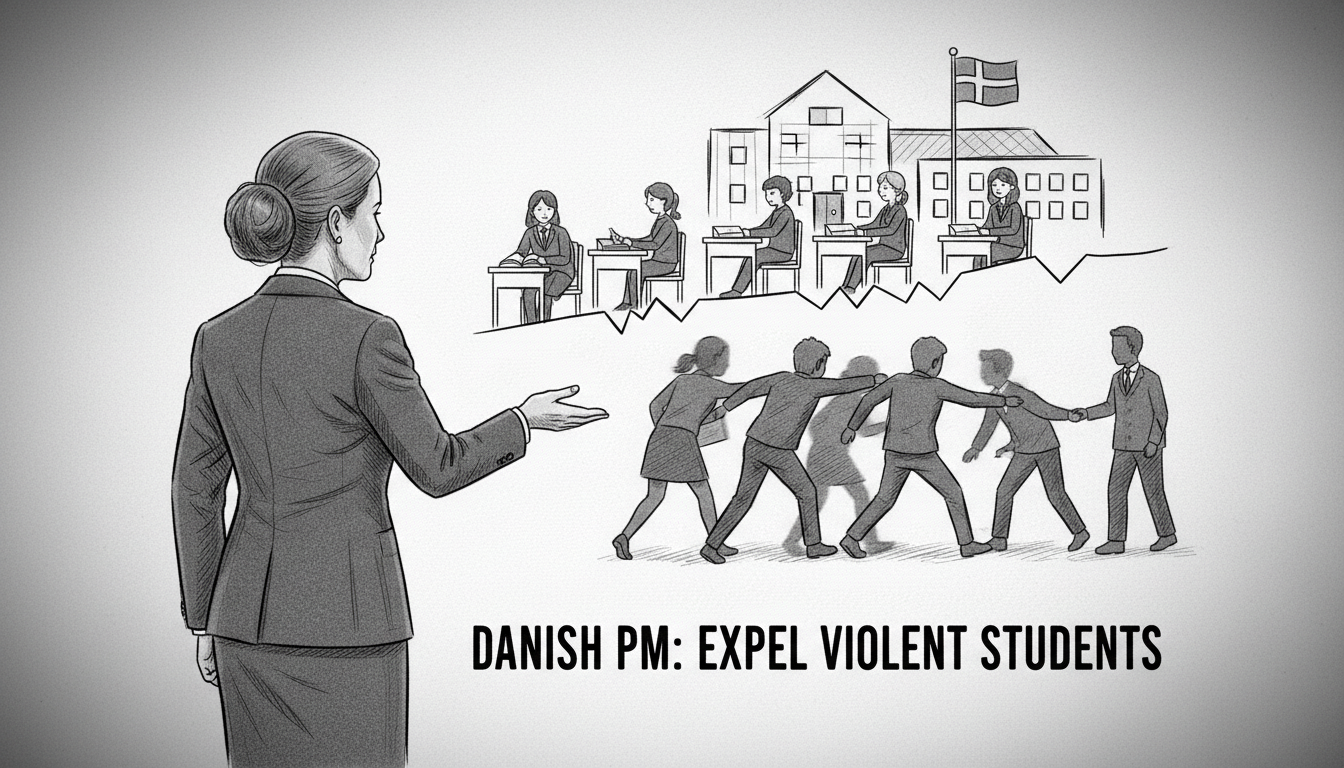Danish Prime Minister Mette Frederiksen wants to give school principals new authority to remove violent students from classrooms. The proposal targets pupils in grades 7 through 9 who exhibit violent behavior. This represents a significant shift in Denmark's approach to school discipline.
Under the proposed measures, principals could temporarily transfer students to alternative educational settings. These transfers could last up to 50 days. Youth schools would typically receive these students during their removal period.
The most controversial aspect gives principals permanent expulsion rights. They could refuse readmission to students deemed too disruptive or dangerous. This marks a departure from Denmark's traditionally inclusive education policies.
Frederiksen defended the proposal by emphasizing social cohesion. She stated that schools must establish clear boundaries for unacceptable behavior. Without these limits, she argued, society cannot function properly.
Denmark's education system has faced increasing challenges with classroom disruptions. Teachers' unions have reported rising incidents of violence and threats. Many educators feel unprepared to handle extreme behavioral issues.
The proposal comes amid broader debates about integration and youth crime in Denmark. Some critics worry about disproportionate impacts on marginalized communities. Others question whether alternative placements can adequately address underlying issues.
Similar measures exist in other Nordic countries, though approaches vary. Sweden uses special programs for students with behavioral problems. Norway emphasizes early intervention and support systems.
The Danish government must navigate complex legal and educational considerations. Student rights protections remain strong under Danish law. Any expulsion process would require careful procedural safeguards.
Parents' organizations have expressed mixed reactions. Some welcome stronger disciplinary tools. Others fear their children might be unfairly targeted or denied educational opportunities.
What practical support will schools receive to implement these changes? How will the government ensure consistent application across municipalities? These questions remain unanswered as the proposal moves forward.
The debate reflects deeper tensions in Danish society about authority, youth development, and social responsibility. As one of Europe's most progressive education systems, Denmark's policy shifts often influence broader regional discussions.
School violence prevention measures have become increasingly political across Scandinavia. Denmark's approach could set important precedents for handling disruptive students in Nordic schools.

